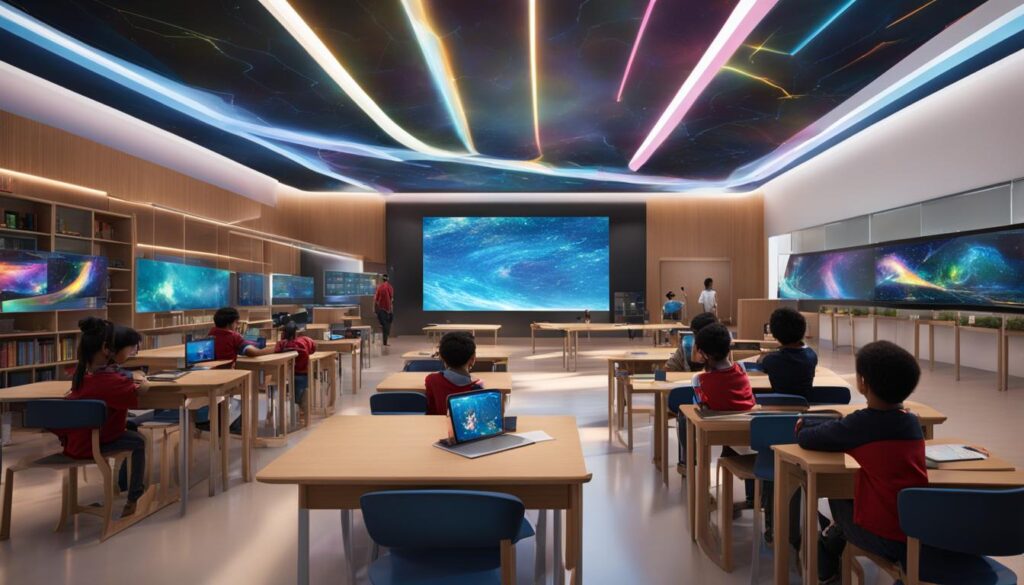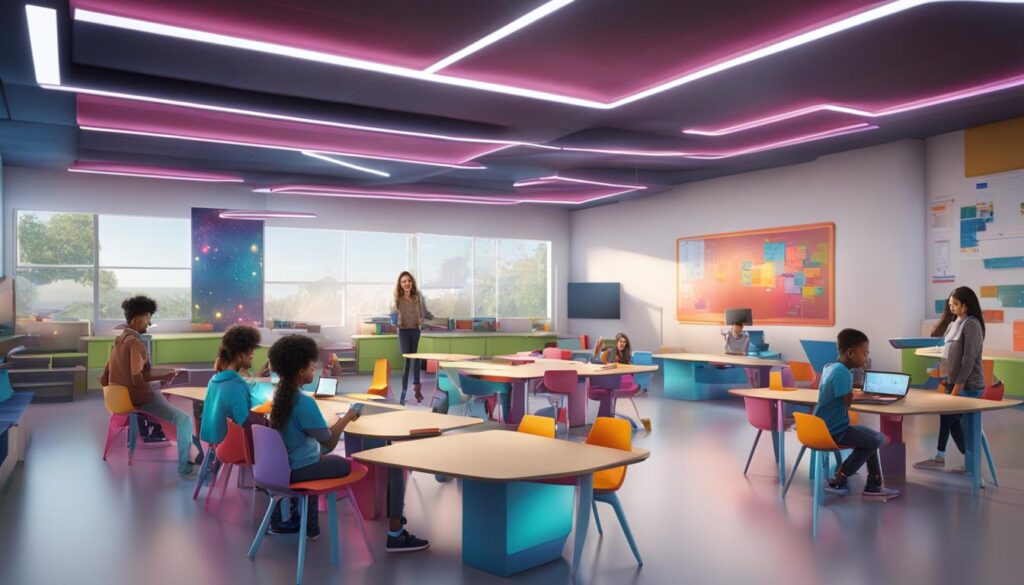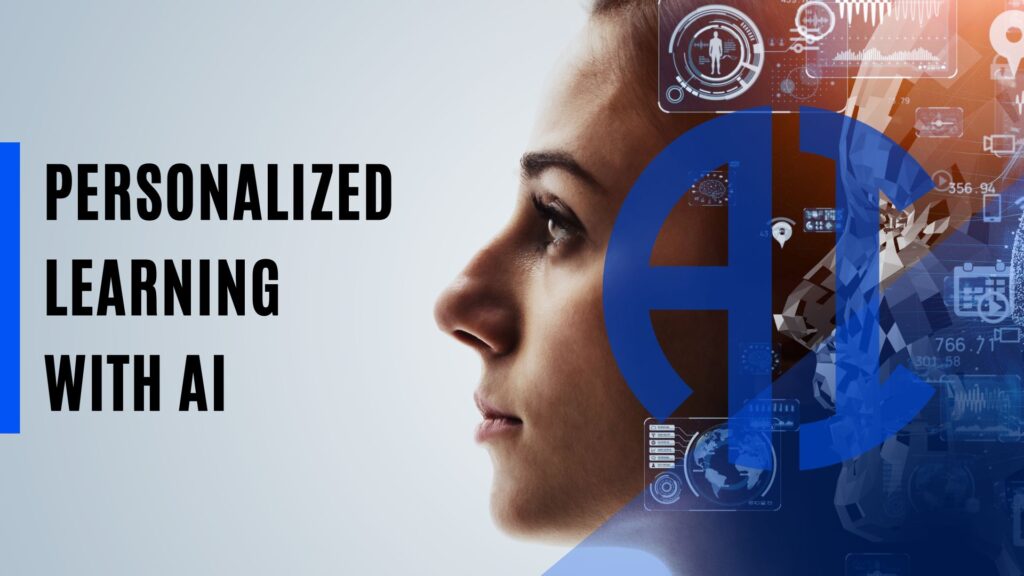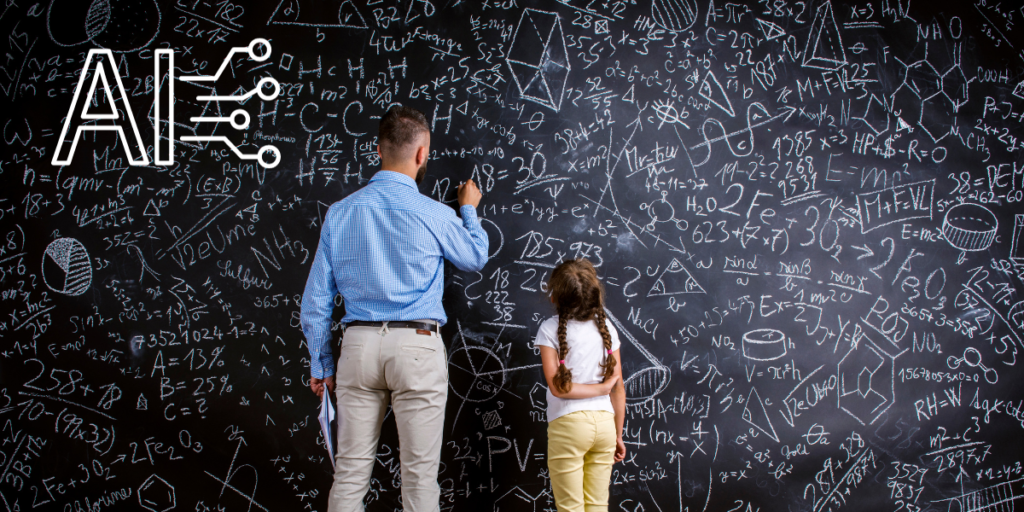
Welcome to the world of personalized learning AI, where artificial intelligence meets customized education. In this era of technological advancements, AI is revolutionizing the way we approach education by providing tailored learning experiences that cater to the unique needs and preferences of each student.
Gone are the days of one-size-fits-all approaches to education that often resulted in disengagement and high dropout rates. With AI-powered personalized learning, students embark on a journey of discovery and growth, guided by algorithms and machine learning algorithms that analyze their individual data and assess their specific educational needs.
Imagine a classroom where every student has a customized learning pathway, interactive resources, and activities designed to maximize their learning potential. AI-driven platforms generate personalized learning paths and automate assessments, providing timely feedback and creating an immersive and engaging education environment.
Through the power of AI, personalized learning technology is optimizing the education experience for both K-12 and higher education environments. Whether it’s adaptive learning platforms, intelligent tutoring systems, or personalized recommendations for learning materials, AI is paving the way for a new era of education.
Join us as we explore the potential of AI in personalized learning, delve into adaptive learning with AI, and discover the benefits of personalized recommendations and natural language processing. We’ll also explore how data-driven insights and multimodal learning experiences are shaping the future of education.
So, buckle up and get ready to witness the synergy of AI and education, where the possibilities for personalized growth and learning are endless. Together, let’s embrace the future of personalized learning AI and unlock the full potential of every student.
The Potential of AI in Personalized Learning
AI technologies in education have the potential to revolutionize personalized learning. By leveraging AI, educators can create tailored educational experiences that address the unique needs, preferences, and learning styles of students. Whether in higher education or K-12 environments, AI applications offer a wide range of benefits, including enhanced student engagement, improved learning outcomes, and individualized support.
One of the key AI applications in personalized learning is adaptive learning platforms. These platforms utilize AI algorithms to analyze student data and provide personalized learning pathways. By assessing individual performance, strengths, weaknesses, and learning pace, adaptive platforms offer appropriate content, resources, and activities tailored to each student’s specific needs.
Intelligent tutoring systems powered by AI also play a crucial role in personalized learning. These systems provide individualized guidance and support to students, offering targeted explanations, feedback, and practice exercises. With AI algorithms, intelligent tutoring systems can assess students’ understanding and adapt their instructions accordingly.
Another important aspect of AI in personalized learning is the ability to provide personalized recommendations. By analyzing vast amounts of student data, AI algorithms can generate tailored recommendations for educational resources, such as books, articles, videos, and other learning materials. This helps students discover relevant content that aligns with their specific interests and learning needs.
Natural language processing (NLP) is also a valuable AI technology in personalized learning. Through NLP, AI enables the development of intelligent chatbots and virtual assistants that can interact with students in a conversational manner. These AI assistants can answer questions, provide explanations, offer feedback, and engage in dialogue, enhancing the overall learning experience.
Furthermore, AI technologies enable the analysis of large amounts of student data to extract meaningful insights. By leveraging data-driven insights, educators can gain a deeper understanding of individual students and make informed decisions to personalize their learning experiences effectively. AI also facilitates multimodal learning experiences by incorporating various formats, such as text, audio, video, and interactive elements, to cater to different learning preferences.
In summary, the potential of AI in personalized learning is vast. AI technologies such as adaptive learning platforms, personalized recommendations, intelligent tutoring systems, natural language processing, data-driven insights, and multimodal learning can transform education by enhancing student engagement, improving learning outcomes, and creating more specialized and convenient learning opportunities.
Related Post: Explore The Top 10 AI Tools For Education in 2024
Adaptive Learning with AI

One of the key applications of AI in personalized learning is adaptive learning platforms. These platforms utilize AI algorithms to analyze student data, including their performance, strengths, weaknesses, and learning pace. By leveraging this data, the system can provide personalized learning pathways for each student, tailoring the content, resources, and activities to their specific needs.
AI-enabled adaptive learning platforms also have the capability to support intelligent tutoring systems. These systems offer individualized guidance and support to students, assessing their understanding and providing targeted explanations, feedback, and practice exercises. By adapting to each student’s unique requirements, these platforms ensure a more tailored and effective learning experience.
Additionally, adaptive learning platforms powered by AI can automate assessments, providing timely and personalized feedback to students. These platforms generate individualized learning paths based on a student’s goals and prior knowledge, allowing them to progress at their own pace.
Adaptive learning platforms play a crucial role in personalized education by using AI algorithms to analyze student data and provide tailored learning experiences. These platforms offer personalized learning pathways, AI-enabled assessments, and personalized feedback, empowering students to achieve their full potential in a dynamic and adaptive learning environment.
Personalized Recommendations and Natural Language Processing
When it comes to personalized learning, AI algorithms play a vital role in analyzing vast amounts of student data. By considering factors such as past performance, interests, and goals, these algorithms can generate personalized recommendations for educational resources, books, articles, videos, and other learning materials. This level of customization helps students discover content that aligns with their specific needs and preferences, fostering a more engaging and effective learning experience.
AI-powered natural language processing (NLP) takes personalization a step further by enabling the development of intelligent chatbots and virtual assistants. These intelligent chatbots can interact with students in a conversational manner, answering questions, providing explanations, and offering feedback. By leveraging NLP, educators can create a more personalized and interactive learning environment, where students can engage in dialogue with AI assistants to enhance their understanding and grasp of the concepts.
Data-Driven Insights and Multimodal Learning
One of the significant advantages of incorporating artificial intelligence (AI) in personalized learning is the ability to gather and analyze large amounts of student data in a more efficient and effective manner. Educators can utilize AI technologies to collect data such as assessment results, engagement levels, and behavior patterns. By extracting meaningful insights from this data, teachers can gain a deeper understanding of individual students and make informed decisions to personalize their learning experiences effectively.
AI technologies also play a crucial role in facilitating multimodal learning experiences. By incorporating various formats such as text, audio, video, and interactive elements, AI enables students to engage with content in ways that suit their learning preferences. This multimodal approach enhances the educational experience, making it more personalized and engaging for students.
Through data-driven insights and multimodal learning, AI aids educators in creating tailored learning experiences and addressing the unique needs of each student. By leveraging the power of AI, educators can provide personalized instruction that aligns with students’ interests, learning styles, and goals, leading to improved learning outcomes and increased student engagement.
Implementing AI-driven analytics and multimodal learning experiences opens up new possibilities for educators to deliver personalized education that caters to the diverse needs of students. By leveraging the insights gained from student data analysis and providing content in multiple formats, AI empowers educators to create a more inclusive and effective learning environment.
Related Post: Exploring the Best 20 AI Tools For Teachers in 2024
Personalized Assessment and Individualized Learning Paths

In the realm of personalized learning, AI plays a crucial role in automating the assessment process and providing students with personalized feedback. By leveraging AI grading systems, assignments, quizzes, and exams can be evaluated efficiently, enabling faster delivery of feedback.
This automated assessment not only benefits educators in terms of time-saving, but more importantly, it helps students identify areas of improvement. By receiving targeted suggestions for further learning, students are empowered to take charge of their educational journey and make progress at their own pace.
Moreover, AI-powered platforms have the ability to generate individualized learning paths for students, tailoring the curriculum and pace according to their goals, interests, and prior knowledge. This personalized approach ensures that students are presented with appropriate challenges and receive the support they need, ultimately maximizing their learning outcomes.
Conclusion
The integration of AI in education holds great potential for revolutionizing personalized learning. By leveraging AI technologies such as adaptive learning platforms, personalized recommendations, intelligent tutoring systems, and data-driven insights, educators can create tailored learning experiences that cater to the individual needs, preferences, and learning styles of students.
AI-powered tools can enhance student engagement, improve learning outcomes, and create more interactive and personalized learning environments. However, it’s important to recognize that while AI offers significant advantages in personalizing education, human teachers play a crucial role in creating supportive and inspiring learning environments.
Combining the power of AI and human expertise, educators can provide more effective and personalized education for every student. This collaboration between technology and human interaction ensures a brighter future for personalized learning and the advancement of education as a whole.
Related Post: The Best AI Tools For Students Everyone Should Know in 2024
FAQ
What is personalized learning AI?
Personalized learning AI refers to the use of artificial intelligence technologies in creating customized and tailored learning experiences for students. AI algorithms analyze student data to assess individual needs and provide personalized learning pathways, resources, and activities.
How does AI benefit personalized learning?
AI technologies in personalized learning offer several benefits, such as enhanced student engagement, improved learning outcomes, and individualized support. AI applications like adaptive learning platforms, intelligent tutoring systems, and data-driven insights help educators address the unique needs, preferences, and learning styles of students.
What are adaptive learning platforms?
Adaptive learning platforms use AI algorithms to analyze student data and provide personalized learning pathways. These platforms offer appropriate content, resources, and activities based on individual needs and learning pace, creating a tailored educational experience.
How does AI enable personalized recommendations?
AI algorithms analyze student data, such as past performance and goals, to generate personalized recommendations for educational resources. These recommendations help students discover relevant content that matches their specific needs and preferences.
What is the role of natural language processing in personalized learning?
Natural language processing (NLP) enables the development of intelligent chatbots and virtual assistants. These AI assistants interact with students in a conversational manner, providing answers, explanations, feedback, and engaging in dialogue to enhance the learning experience.
How do data-driven insights contribute to personalized learning?
AI technologies gather and analyze large amounts of student data to extract meaningful insights. Teachers can use these insights to gain a deeper understanding of individual students and make informed decisions to personalize their learning experiences effectively.
How does AI automate the assessment process in personalized learning?
AI-powered platforms automate assessments, enabling faster feedback delivery to students. Intelligent grading systems evaluate assignments, quizzes, and exams, helping students identify areas of improvement and providing targeted suggestions for further learning.
What is the future of AI in personalized learning?
The integration of AI in personalized learning has the potential to revolutionize education, providing tailored learning experiences that address the diverse needs of students. However, it is important to note that while AI offers tremendous potential, human teachers remain crucial in creating supportive and inspiring learning environments.

